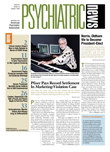Although the exact size and scope of a final health care overhaul measure remains unclear, many experts continue to view as inevitable enactment of some type of reform legislation this year.
The ability of President Obama and Democratic leaders in Congress to get a health care reform measure passed this year was cast into doubt because of massive cost estimates released in July by the Congressional Budget Office and raucous town-hall meetings in August dominated by constituents opposed to reform proposals.
But those developments have not altered the basic realities that employees expect employers to provide health insurance and that health insurance is becoming increasingly unaffordable for both parties.
“When push comes to shove, even if it ends up just being the interest groups with the Democratic Party, I think you will in fact see something that is relatively comprehensive” this year, said Dallas Salisbury, president and CEO of the Employee Benefits Research Institute, at a forum sponsored by the Alliance for Health Reform last month in Washington, D.C.
His belief that Congress will enact some type of health reform was based on his research indicating that employers know their workers need insurance coverage but are increasingly unable to pay for it. For instance, he found that 35 percent of employees identify their employer's health insurance policy as the most important reason they sought their job.
The same inexorable cost pressures led Gail Wilensky, who once headed the agency now known as the Centers for Medicare and Medicaid Services, to agree that it is inevitable that Congress will pass a bill this year that not only reforms health insurance but also overhauls how health care is provided.
“We need expanded coverage and reforms of the health insurance market, but sustainability in spending and improving the quality and clinical appropriateness are even more important,” she said.
Among the key reforms to reduce costs that Wilensky expects Congress to enact are incentives to reduce unnecessary hospital readmissions and cuts in“ generous” Medicare nursing home reimbursement rates. Halving the number of unnecessary hospital readmissions—which demonstration projects have attained in some locations—would reduce Medicare spending by $100 billion over 10 years, according to Glen Thorpe, chair of the Department of Health Policy and Management at Emory University.
Thorpe also expects a reform measure to be passed this year; however, he suggested that an incremental approach is possible. It could take several years of passing small reform packages to meet the two general goals that have drawn broad consensus: universal insurance coverage and cost control to slow health care spending growth.
The two main cost-control approaches that Thorpe expects to be part of a reform law will aim to reduce the number of clinically obese Americans and improve care for people with chronic illness. He hailed several pilot programs to improve care coordination for Medicare beneficiaries with chronic illness, who now have almost no such integrated care, even though 95 percent have multiple chronic conditions. Effective reform would identify which approaches—such as programs that assign one physician as a patient's coordinator—are most effective and then quickly expand the use of those approaches throughout Medicare.
Mental health advocates also remained very optimistic about enactment of a health care overhaul before Congress adjourns for the year.
Rep. Patrick Kennedy (D-R.I.) told congressional staffers and advocates that the public would become more supportive of reform if it was framed as a way to expand Americans' freedom to obtain needed care and independence from the burden of untreated illness. Advocates should stress that the lives of all Americans would be improved by having access to high-quality medical care, he suggested.
“We're going to define health care in the broadest sense so that [Americans] are able to live long lives that are not impeded in any way,” Kennedy said.
Information on the Alliance for Health Reform forum is posted at<www.kff.org/ahr090409video.cfm>.▪

